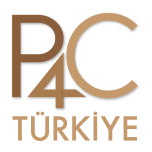
P4C in Kindergartens
This movement, which is very widespread in the world, has started to be applied rapidly by the main schools which are open to innovative education systems in our country. P4C applications are extremely important for children of this age group with the potential to ask a very strong question. It has great importance of improving the most basic feature of human being, which is defined as thinking entity, with awareness at young ages.
P4C develops critical and creative thinking skills that a person will need throughout his or her life and education. Children learn to find answers to questions or to ask new questions, to share ideas freely, to listen to friends, to be attentive when objecting to their ideas, or to develop the idea in cooperation by participating in a shared story, film, or picture.
The purpose of P4C was never to teach children philosophers or history of philosophy. The goal is to teach children to think and to ask questions. Matthew Lipman, who developed the P4C training approach, believes that the desire for curiosity and discovery from the nature of children, when combined with philosophy, will make children more flexible and efficient in the future.
After Lipman, several thinkers and educator advocated the method of philosophy with children. One of them is Thomas E. Jackson. Jackson predicted to begin philosophy education with children in kindergarten, to take part in the curriculum of primary education and to be a regular course. Jackson-The concept of P4C has revealed that the following skills have evolved
1. Personality development skills:
- Children feel confident
- Create their own thoughts based on reasons
- Being self-critical
- Defend their views against others and say no when needed
2. Social Skills:
- Being ready to discuss
- Accepting other opinions
- Democratic understanding
- Being open to different solutions and suggestions
- Experiencing the feeling of ‘we’
- Increased communication skills
- Recognize and accept conflict or criticism as wealth
3. Logical Skills:
- The power and ability of evidence
- Critical and logical thinking
- Supporting and developing the evaluation and judgment power
One of the first names that comes to mind for philosophy with children is Oscar Brenifier. He is a philosopher who is well known in our country with his philosophy books written specifically for preschool students. In books written for 3 years and older, the aim is for parents and teachers to read them to children and to reveal various discussion topics on books.
According to Oscar Brenifier, just like adults, children also have a variety of concerns about their existence, even if they don’t know it and don’t talk about it. If these questions are not addressed to children and are not discussed, they can then return in a pathological way.
The findings of Brennifier, who visited our country many times and examined our education system, are also very important:
‘Turkey continues to be victimized from the traditional education model, like many other countries. The model of education where teachers only apply the curriculum and students only listen and repeat what is said.’
P4C Turkey, we care about the widespread growth of P4C applications in the schools. As with any subject, ‘You can’t teach an old dog new tricks’ understanding also applies to this issue. In addition to maintaining P4C practices with our students every week in the schools, we work together with our parents and teachers to ensure that they are effective in P4C practices.

